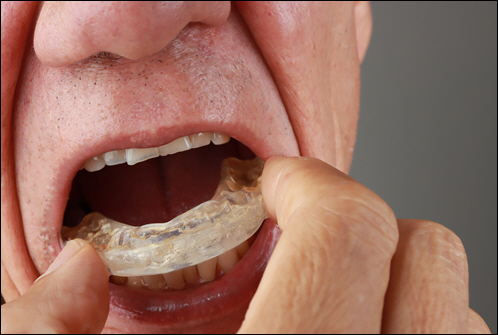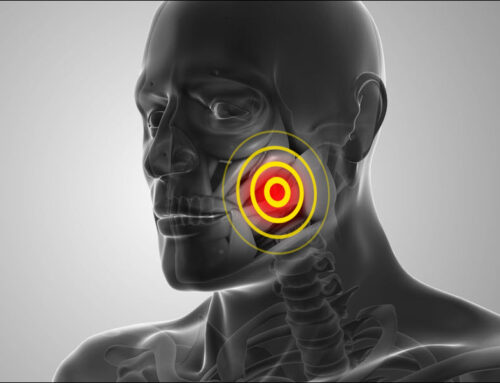Jaw pain can impact daily activities, from eating to speaking, and is often more than just a minor discomfort. This common issue can result from a variety of causes, such as muscle tension, joint disorders, or teeth grinding, and understanding these underlying factors is key to effective treatment. By identifying the cause, practicing preventive measures, and seeking appropriate treatment, you can manage pain and improve your quality of life.
Common Causes
 Several factors contribute, with some of the most common causes including:
Several factors contribute, with some of the most common causes including:
- Temporomandibular Joint Disorder (TMD): TMD affects the temporomandibular joints (TMJ), which connect your jaw to your skull. This condition leads to pain, stiffness, or a clicking sound when you open your mouth. Stress, arthritis, or misalignment often contribute to TMD.
- Teeth Grinding (Bruxism): Many people grind their teeth unconsciously, especially at night. Over time, bruxism puts strain on the jaw muscles and can wear down teeth, leading to jaw pain and even headaches.
- Arthritis: Osteoarthritis or rheumatoid arthritis can affect the TMJ, causing pain, inflammation, and restricted movement. Arthritis in the jaw joints often requires specific treatment to manage inflammation and reduce discomfort.
- Injury: Trauma to the jaw, such as a sports injury, car accident, or even an accidental fall, can cause fractures, dislocations, or sprains that lead to persistent pain.
- Sinus Problems or Infections: In some cases, sinus infections or other inflammatory conditions can contribute to jaw pain, especially if they create pressure near the TMJ area.
Prevention
While not all causes of jaw pain are avoidable, taking steps to minimize risks can make a significant difference. Here are some preventive measures:
 Reduce Stress: Stress often causes jaw clenching, which strains the muscles and joints. Practice stress-relief techniques like meditation, deep breathing, or yoga to relax your jaw and avoid unnecessary tension.
Reduce Stress: Stress often causes jaw clenching, which strains the muscles and joints. Practice stress-relief techniques like meditation, deep breathing, or yoga to relax your jaw and avoid unnecessary tension.- Avoid Hard or Chewy Foods: Hard foods like nuts or candies and sticky foods like gum put extra stress on your jaw muscles. Opt for softer foods if you’re prone to pain in your teeth or jaw, especially during flare-ups.
- Practice Good Posture: Slouching or craning your neck can increase strain on the jaw. Maintain good posture, especially if you spend a lot of time sitting at a desk, to reduce jaw tension.
- Wear a Mouthguard: If you grind your teeth at night, consider using a custom-fitted mouthguard to protect your teeth and reduce jaw strain. Mouthguards cushion the impact of grinding and relieve pressure on the jaw joints.
Treatment Options for Jaw Pain
When jaw pain persists or becomes severe, professional treatment may be necessary. Common treatment options include:
- Physical Therapy: Physical therapists can help relieve pain with exercises that strengthen and stretch the jaw muscles. Therapy can also improve range of motion and reduce stiffness.
- Medication: For pain related to inflammation, over-the-counter anti-inflammatory medications can help. In some cases, doctors may prescribe muscle relaxants or stronger pain relief.
- Hot and Cold Therapy: Applying a warm compress can relax muscles and improve circulation, while a cold pack can reduce swelling. Alternating between hot and cold packs provides relief for many people with TMD or bruxism-related pain.
- Dental Treatments: If misalignment or bruxism contributes to jaw pain, orthodontic treatments or nightguards may help. Dentists can recommend solutions to reduce grinding, relieve pressure, and align the bite properly.
Seeking Relief
Jaw pain is often manageable with the right combination of prevention and treatment. By identifying the underlying cause and addressing it with targeted strategies, you can relieve discomfort and protect your jaw from further issues. If jaw pain affects your daily life, consult with your dentist or doctor to find the best solution tailored to your needs.



